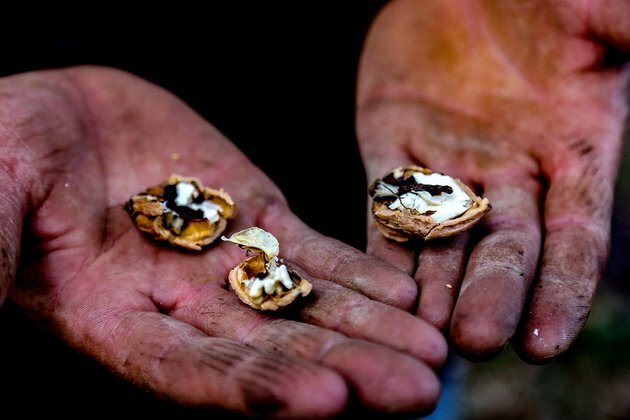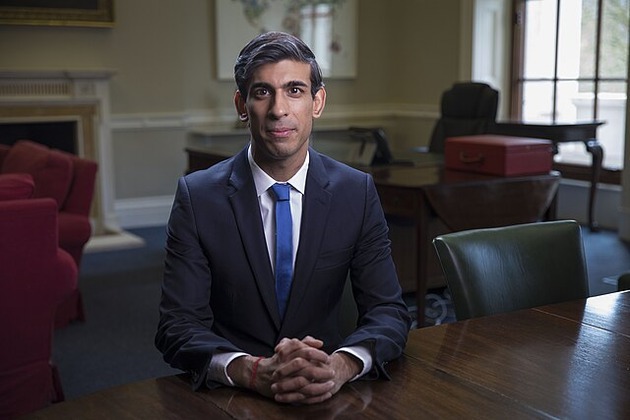Kyrgyzstan's ancient walnut forest living through uncertain times
Eurasianet
09 Oct 2018, 20:19 GMT+10

On a muddy road high above the Fergana Valley, laden donkeys descend toward the market town of Arslanbob, famed for its walnuts.
Shelled, unshelled; ripe, unripe: the donkeys drag it all from the world's largest natural-growth walnut forest, which covers 150 square miles of southern Kyrgyzstan.
October is harvest season. Local families camp in the forest awaiting the final ripening, when the fruits fall from the trees.
Besides its famous forest, Arslanbob offers walnut farmers other economic advantages: Cheap labor and markets in every direction make Kyrgyzstan one of the world's largest walnut exporters. In a 2012 study, the World Bank found walnuts provided up to 16,000 jobs in Kyrgyzstan.
But the harvest is unpredictable. It may also be unsustainable.
Rahmatillo Tohtarov started leasing a plot of 75 to 80 trees from the state forestry service 10 years ago. "Every spring, I pay a fee to the forestry office and then the whole summer we observe the forest and look out for any problems with the trees," Tohtarov explained. Each September, four members of his family move to the forest to camp and wait.
The nuts are dried and cleaned in Arslanbob and packed for shipment to bazaars in Kyrgyzstan and further afield. Exports have significantly increased in recent years, most notably to Russia; Kyrgyz walnuts now account for about a quarter of Russian imports. According to UN figures, the total value of Kyrgyz walnut exports increased from $2 million to $6.2 million between 2016 and 2017, to 281.4 tons. An Economy Ministry representative said the total was closer to $7 million.
Though impressive, 2017 may have been a fluke. Tohtarov predicts this year his yield will fall up to 70 percent due to unfavorable weather and a spider infestation.
Khusnidin Abdukhalikov, an Arslanbob native who is a walnut farmer and former forest ranger, says climate change and soil erosion from overgrazing are damaging the trees. Relying on a single crop, moreover, is always precarious.
"There are many constraints to a consistent crop and this unpredictability leads to economic stress for many residents," Abdukhalikov told Eurasianet. Locals are buying more animals as collateral because the economy is growing more uncertain. It's a vicious cycle: The animals, mostly cows, graze among the trees, weakening the root systems and encouraging landslides. The weather is changing, too, he says, pointing at yellowing grass on the hillside.
"There continue to be fewer and fewer walnuts with many trees not yielding at all."
The forestry department is encouraging farmers to plant new walnut trees, alongside other crops like apples, cherries and potatoes. But some efforts are better in theory than practice.
In 2006 the government began imposing hefty fines for felling trees or even diseased branches. "The result is that walnut trees do not receive proper care and maintenance to trim broken or diseased branches, which are left to rot. This policy may inadvertently cause a decrease in the stock of walnut trees as older trees become diseased and die off quicker than anticipated," said the World Bank study.
Middlemen
The market at Bazaar Kurgan, down in the valley, starts early. Truckloads of walnuts arrive at 6 a.m., ready to be sold unshelled in bulk for 200 som ($2.90) per kilo. They're gone within two hours.
Turkish buyers are so eager they often camp out on the road from Arslanbob to Bazaar Kurgan and buy the walnuts before they arrive at market. This suits the farmers, who prefer to sell shelled nuts since they can garner up to 500 som ($7.20) per kilo. "Most people want to sell to Turkey," said Tohtarov. "It is double the money."
At the Osh Bazaar in Bishkek, Kyrgyzstan's capital, two Arslanbob-born vendors say they serve buyers from Iran, Turkey, Russia and China, sometimes even Saudi Arabia. Kazakhstanis are becoming more frequent customers, too. Keldibek Saipidin uluu and Orozbek Taalaybek uluu buy a kilo for 400 som and sell for 500 to 600 som. They must also pay for security at the bazaar - about 50 som per kilo, they estimate.
When the nuts finally reach Moscow, they fetch 600-850 rubles per kilo ($9-12.75) at Food City, a warehouse on the southern edge of the capital filled with thousands of sellers, drivers and haulers. Some sell out of their trucks, others from market stalls.
Venders at Food City, who mostly hail from Central Asia, say the nuts arrive by train and airplane, often via Uzbekistan where they can be hulled for less, since wages there are lower than in Kyrgyzstan.
From Food City they are distributed to major markets around the Russian capital - Dorogomilovsky, Danilovsky, Usachevsky, Cheremushky - where shelled walnuts can run up to 1500 rubles ($22.50) a kilo. Imports dropped in 2016, though, due to the weak Russian economy.
Still picking
Abdukhalikov, the former forest ranger, is accustomed to economic risks. As a child he would go with his five sisters and three brothers to the forest each October. He fell and broke his arm at 16, while shaking a branch.
Soviet authorities rewarded hard workers. Thirty years ago, Abdukhalikov received a Niva, a Soviet jeep, after gathering 40 tons of potatoes and nuts. He uses the car to this day: "I fill it full of walnuts."
Now 50, Abdukhalikov has two sons who help when they are not working in Russia. "After the USSR collapsed, we had no money, even for bread. My son asked for one piece [of bread] and I worked all night to collect enough walnuts and potatoes to afford it."
 Share
Share
 Tweet
Tweet
 Share
Share
 Flip
Flip
 Email
Email
Watch latest videos
Subscribe and Follow
Get a daily dose of Kansas City Post news through our daily email, its complimentary and keeps you fully up to date with world and business news as well.
News RELEASES
Publish news of your business, community or sports group, personnel appointments, major event and more by submitting a news release to Kansas City Post.
More InformationInternational
SectionFrom France’s shores, desperate migrants look to reach British coast
ECAULT BEACH, France: On clear days, the white cliffs of the United Kingdom, are visible from northern France, where men, women, and...
CDC: US records 1,288 measles cases, most since 1992 outbreak
ATLANTA, Georgia: The United States is facing its worst measles outbreak in more than three decades, with 1,288 confirmed cases so...
Gaza War sucking life out of an Israeli generation
In the past month alone, 23 Israeli soldiers have been killed in Gaza—three more than the number of remaining living hostages held...
Faulty IT system at heart of UK Post Office scandal, says report
LONDON, U.K.: At least 13 people are believed to have taken their own lives as a result of the U.K.'s Post Office scandal, in which...
Travelers can now keep shoes on at TSA checkpoints
WASHINGTON, D.C.: Travelers at U.S. airports will no longer need to remove their shoes during security screenings, Department of Homeland...
Rubio impersonator used AI to reach officials via Signal: cable
WASHINGTON, D.C.: An elaborate impersonation scheme involving artificial intelligence targeted senior U.S. and foreign officials in...
Business
SectionAI boom propels Nvidia to historic market cap milestone
SAN FRANCISCO, California: Nvidia, the Silicon Valley chipmaker at the heart of the artificial intelligence boom, this week briefly...
AI saves $500 million for Microsoft as layoffs reshape strategy
REDMOND, Washington: Artificial intelligence is transforming Microsoft's bottom line. The company saved over US$500 million last year...
FTC’s rule to ease subscription cancellations struck down by court
WASHINGTON, D.C.: A federal rule designed to make it easier for Americans to cancel subscriptions has been blocked by a U.S. appeals...
Musk’s X loses CEO Linda Yaccarino amid AI backlash, ad woes
BASTROP, Texas: In a surprising turn at Elon Musk's X platform, CEO Linda Yaccarino announced she is stepping down, just months after...
Ex-UK PM Sunak takes advisory role at Goldman Sachs
NEW YORK CITY, New York: Former British prime minister Rishi Sunak will return to Goldman Sachs in an advisory role, the Wall Street...
Gold ETF inflows hit 5-year high as tariffs drive safe-haven bets
LONDON, U.K.: Physically backed gold exchange-traded funds recorded their most significant semi-annual inflow since the first half...













